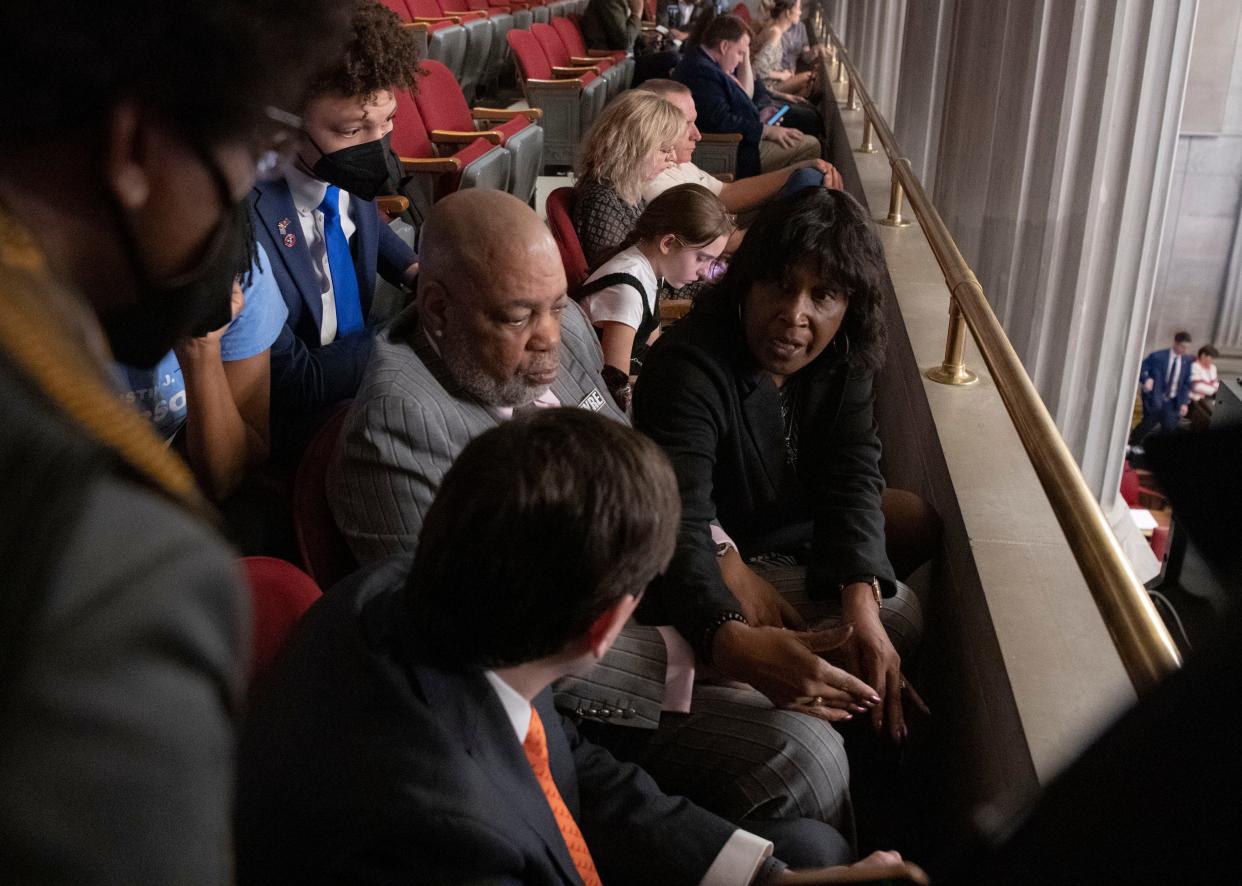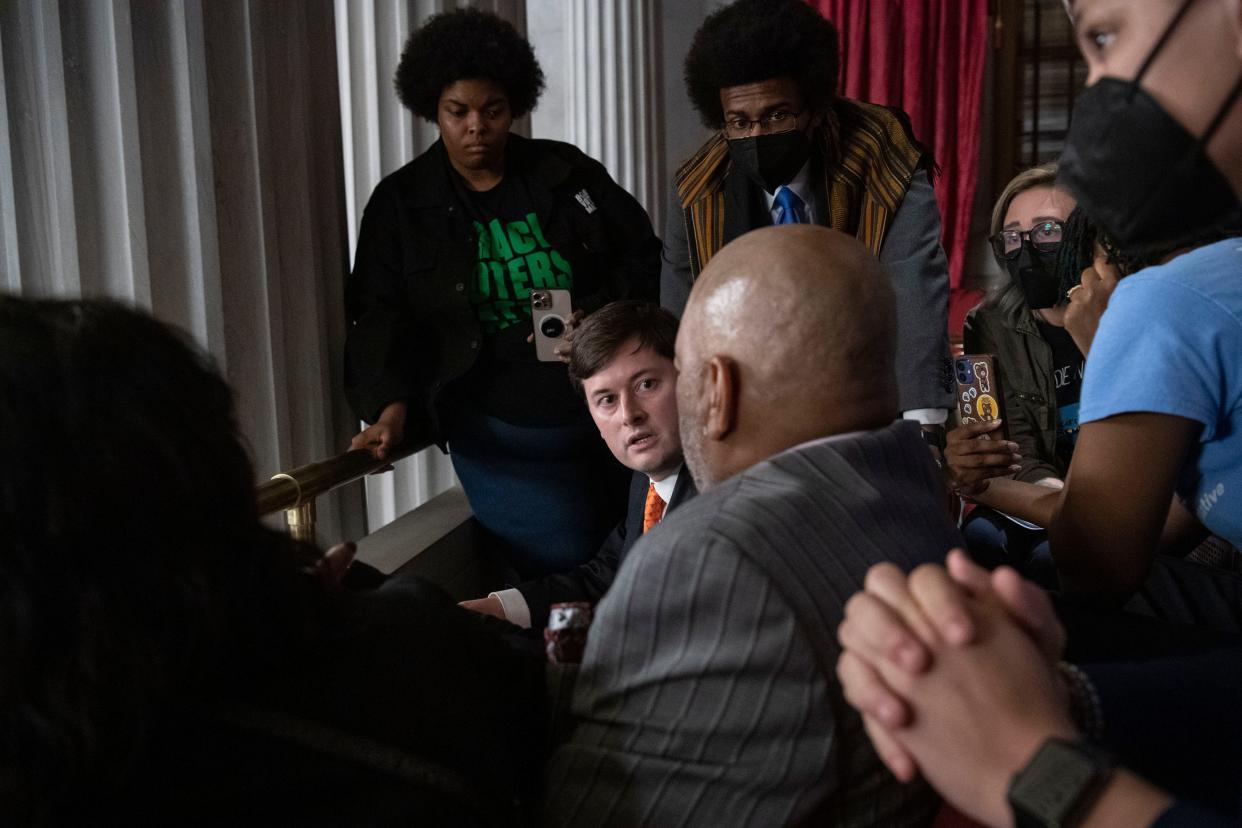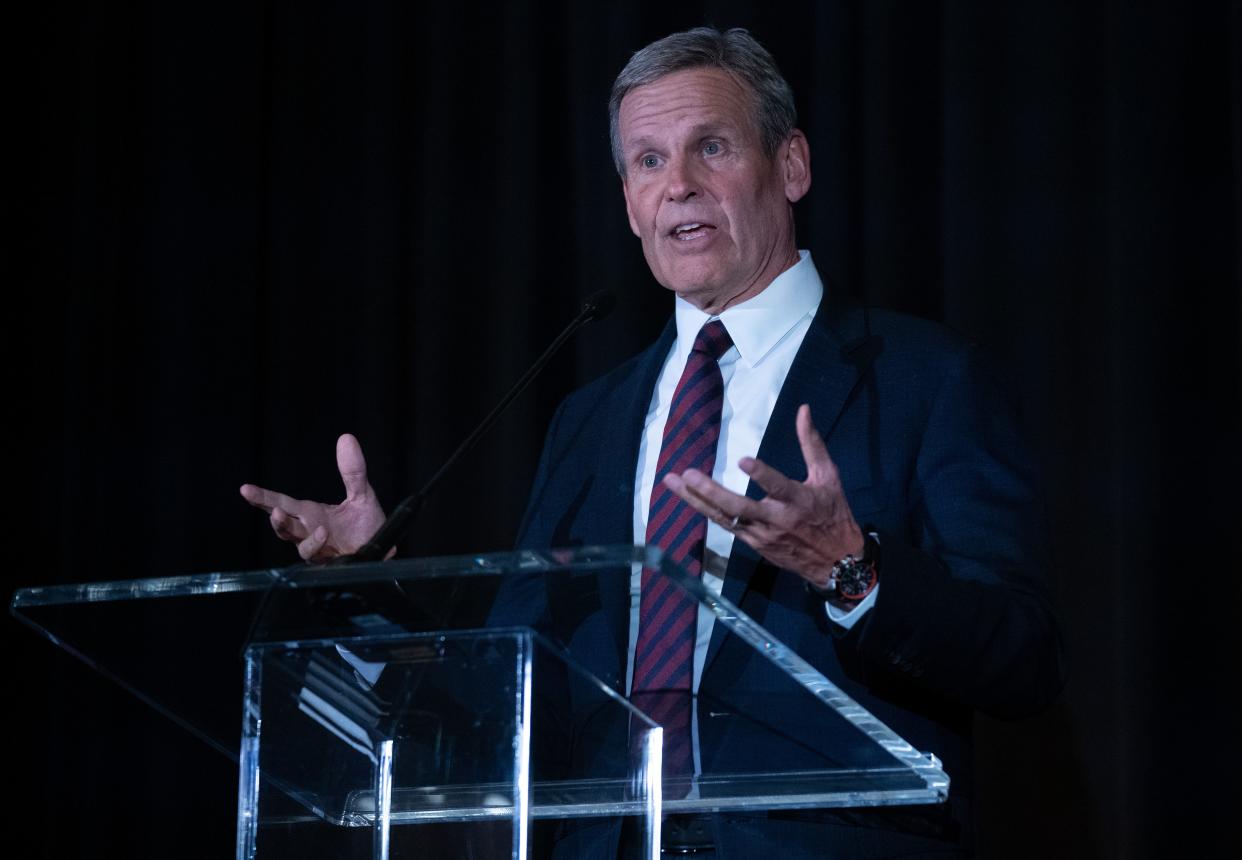What happens now that TN Gov. Lee signed bill barring local traffic stop police reforms?

Over a year after Tyre Nichols — a 29-year-old Black motorist — was fatally beaten by officers with the Memphis Police Department, local activists continue to push for reforms under Nichols' name.
As recently as Thursday, activists and organizers have called for ordinances passed in the wake of Nichols' death to be enforced, despite one being recently undone by the state legislature.
About three weeks before Thursday's calls to enforce police reform measures, Tennessee Gov. Bill Lee signed a bill into law that prevents city and county governments from enacting ordinances and resolutions that limit the type of traffic stops law enforcement can make.
The bill directly targeted the Memphis City Council, which passed a law barring officers with the Memphis Police Department from pulling drivers over for minor traffic infractions, often called "pretextual stops."
The ordinance prevented MPD officers from pulling people over for registration that expired under 60 days prior to the stop; if a temporary tag is in the incorrect place, but clearly visible; if a license plate is not securely fastened to a vehicle, but is clearly visible; if a single brake light, headlight or running light is broken; and if the car is missing, or has a loosely fastened bumper.
If police were to pull a driver over for a more serious offense, such as running a stop light or speeding, the officer could still cite the driver for one of those smaller offenses.
The bill passed the House along a party-line vote, after much confusion and allegations that State Rep. John Gillespie — a Memphis Republican — misled Tyre Nichols' parents on the date a vote would take place. Gillespie was the bill's House sponsor.
It passed another party-line vote in the Senate a week later, sending it to Lee's desk to be signed. Ahead of the signature, Lee was asked whether he would sign the bill even as the Wells family, Nichols' parents, were asking for it to be vetoed.

"I think what's most important for us to remember is that we can give law enforcement tools, but we've got to hold law enforcement to a standard of using those tools appropriately — where there's an appropriate interaction with the public," Lee said. "That's not what we understand has happened all the time, and certainly their family would attest to that. It's not that we would limit law enforcement with tools. We just need to make sure they use those tools appropriately when stopping a car, when interacting with someone. That's where we need to go with that."
With Lee's signature on the bill, it went into law immediately, and effectively repealed the ordinance passed by the Memphis City Council.
Was the ban on pretextual stops ever enforced?
Though being on the books for over half a year, it is still not clear whether or not the ordinance was enforced. During his final days in office, former Memphis Mayor Jim Strickland sent the city council a letter saying that his administration did not enforce the ordinance, citing concerns with the separation of powers.

Days after current Memphis Mayor Paul Young was sworn into office, Young told reporters during a press conference that his administration would enforce the ordinance. After that press conference, interim MPD Chief Cerelyn "C.J." Davis told reporters that she had enforced the ordinance internally through memos, roll calls and updated training requirements.
The Commercial Appeal requested copies of any materials pertaining to enforcing the ordinance from MPD through the Tennessee Public Records Act in January 2024 but has not yet received any such records. The last response received from the city said it was "still in the process of retrieving, review and/or redacting the requested records" and said it would need until April 22 to produce them.
Davis, during confirmation proceedings in front of the Memphis City Council, reiterated that she had been enforcing the ordinance internally. When asked about stops made by her officers by City Council Chairman JB Smiley Jr., Davis said she was still enforcing the ordinance.
Young later pulled Davis from the confirmation slate, brokering a deal that would keep her on board in an interim role for an indefinite amount of time.
More: Judge denies venue change in Tyre Nichols federal case, lawyers can file same motion later
More: Tyre Nichols state criminal trial put on hold until federal trial finishes, attorney says
The CA reached out to Young's administration, asking what comes next now that Lee had signed the bill voiding the pretextual stop ordinance.
"We are reviewing the ordinances in tandem with the state statute to ensure compliance," Communications Director Penelope Huston said in a text message.
Huston, in response to questions about when the ordinance was enforced, said that MPD has, and will, follow both state and local law at all times. It was not clear if that meant MPD was shifting policies to follow the new state law, and it had previously been operating under the pretextual stop ordinance.
Questions about internal policy changes since Lee signed the bill into law were sent to MPD, but the department had not responded by the time of publication.
Lucas Finton is a criminal justice reporter with The Commercial Appeal. He can be reached at Lucas.Finton@commercialappeal.com, or (901)208-3922, and followed on X, formerly known as Twitter, @LucasFinton.
This article originally appeared on Memphis Commercial Appeal: TN gov. signed law banning local traffic stop reform. What now for MPD?
